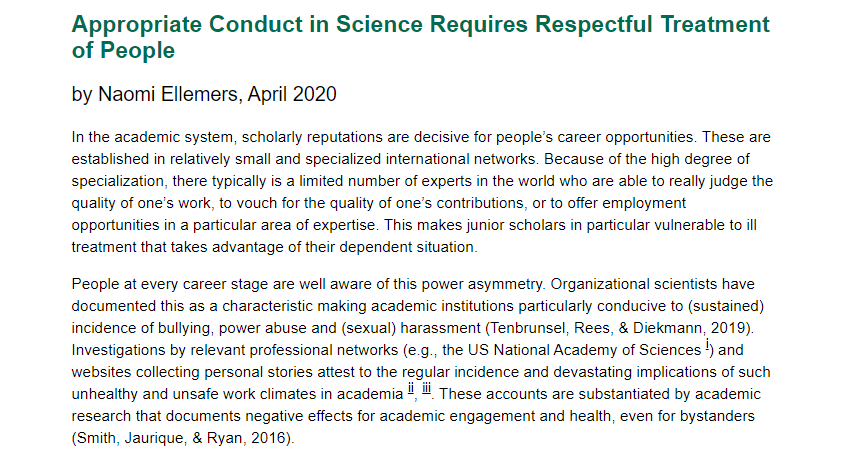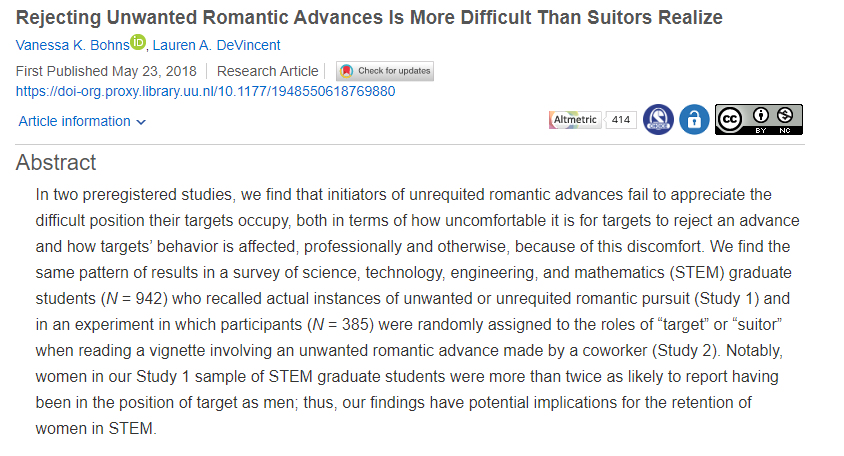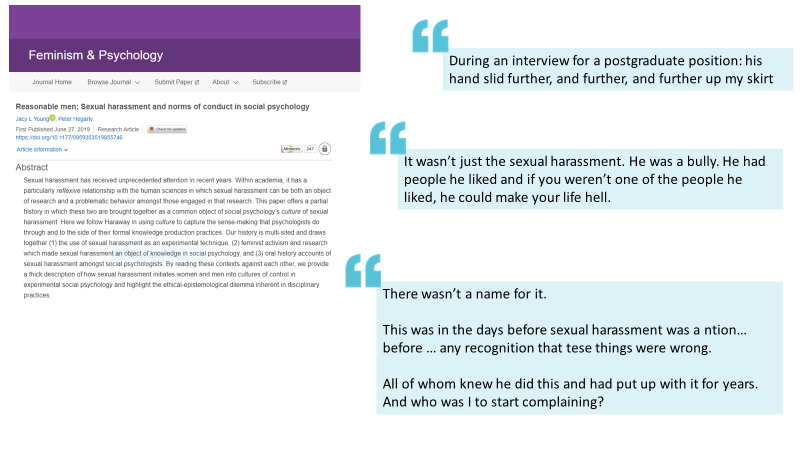
Her contribution can be found here.
Ellemers, N. (2020). Appropriate conduct in science requires respectful treatment of people. European Bulletin of Social Psychology, 32. https://www.easp.eu/getmedia.php/_media/easp/_archive/20200515093009.html

Her contribution can be found here.
Ellemers, N. (2020). Appropriate conduct in science requires respectful treatment of people. European Bulletin of Social Psychology, 32. https://www.easp.eu/getmedia.php/_media/easp/_archive/20200515093009.html

Bohns, V. K., & DeVincent, L. A. (2019). Rejecting unwanted romantic advances is more difficult than suitors realize. Social Psychological and Personality Science, 10, 1102-1110. https://doi-org.proxy.library.uu.nl/10.1177/1948550618769880
 Young and Hegarty (2019) address the longstanding presence of sexual harassment in psychology in three contexts; as an experimental technique, an object of psychological knowledge, and a behavior engaged in by psychologists.
Young and Hegarty (2019) address the longstanding presence of sexual harassment in psychology in three contexts; as an experimental technique, an object of psychological knowledge, and a behavior engaged in by psychologists.
Young, J. L., & Hegarty, P. (2019). Reasonable men: Sexual harassment and norms of conduct in social psychology. Feminism & Psychology. https://doi.org/10.1177/0959353519855746
Tenbrunsel, A. E., Rees, M. R., & Diekmann, K. A. (2019). Sexual harassment in academia: ethical climates and bounded ethicality. Annual review of psychology, 70, 245-270. https://doi.org/10.1146/annurev-psych-010418-102945
 Read the newsletter (in Dutch) "#MeToo in de wetenschap" of 19 December 2017
Read the newsletter (in Dutch) "#MeToo in de wetenschap" of 19 December 2017
